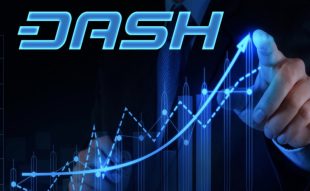Join Our Telegram channel to stay up to date on breaking news coverage
South Korea is on its remarkable journey concerning blockchain developments and legislation. On Monday, South Korea’s Financial Service Commission (FSC) noted that the blockchain-based tokens would be regulated as securities. This will only occur if the iterations of traditional securities, known as security tokens, have the corresponding qualifications laid out in the country’s capital market rules.
South Korea's financial watchdog has issued guidelines on how security tokens would be regulated in the country under upcoming legislation.@iamsandali reportshttps://t.co/iw3erXFOcF
— CoinDesk (@CoinDesk) February 6, 2023
The Capital Markets Act deems ‘securities’ as financial investment instruments where investors cannot make additional payments on top of the original investment. However, the FSC laid out some examples of digital assets most likely to be classified as securities. Some of them include the rights to dividends or residual property, those with a stake in the running of a business, or those with issuer attribute profits acquired from the business to the investors.
According to the guidance, security tokens are the digitalization of securities under the Capital Markets Act using distributed ledger rules. However, the securities will only apply to digital assets that qualify. Noteworthy, the guidance notified that stablecoins, which are crypto pegged to the utility of various currencies, including US Dollars, and are used as a means of exchange, will not fall under the definition of securities. Further, the digital assets that do not have to fulfill the requirements in line with the investor’s rights will fall out of the scope of security tokens.
The Efforts Of South Korea In The Crypto Ecosystem
The country is working to regulate the crypto and blockchain space comprehensively. South Korea’s National Assembly lawmakers are considering 17 different crypto-related legislative frameworks. The ongoing discussions are centered on creating the Digital Asset Basic Act (DABA), an entirely legal framework for regulating the country’s growing crypto ecosystem.
In June, the Korean media first revealed that the lawmakers were working on DABA, a month after the collapse of Korean algorithmic stablecoin issuer Terra. It is alleged that Terra’s collapse wiped away about $60 billion from the global crypto space. However, regulators across the globe have called for comprehensive crypto regulations to be in place to protect investors. Some regulators have responded, as the European’s Union landmark Markets in Crypto Assets (MiCA) is set for a vote in April. The US lawmakers are weighing multiple proposed bills that seek to regulate the domestic industry. Notably, the South Korean lawmakers noted that DABA could be ready as early as June.
Nonetheless, the FSC asserted that the security-like characteristics of digital assets and other cryptocurrencies would be determined on a case-by-case groundwork. They further stipulated that the issuers and brokers, including crypto exchanges, will be responsible for making evaluations that align with the regulations. FSC noted:
Digital assets corresponding to securities should be issued and distributed in compliance with all securities laws under the Capital Markets Act.
FSC’s amendment plan in 2023
Nonetheless, the FSC has stipulated that the new guidelines prepare the financial sector for the upcoming legalization of the issuance and distribution of security tokens. With the new guidelines, the planned regulations support innovation and ensure consumer protection. Additionally, FSC has remarked that it would submit a proposal to incorporate updates to existing financial laws within the first quarter of 2023.
During the first half of 2023, we will aid institutionalization by suggesting amendments to the Electronic Securities Act and Capital Markets to the National Assembly.
However, the Korea Exchange will operate the digital securities market, as the Korea Securities Depository will assess the tokens before registering or listing them.
On the other hand, Shinhan Securities, the largest securities firm in South Korea by net profit, asserted on Monday that it had formed what they dubbed as “STO Alliance” to widen the securities token industry. Shinhan company, founded in 2002, focuses on stability and profitability. It also puts a lot of effort towards maximizing shareholders’ values and fulfilling corporate responsibilities to its citizens.
More News:
- Therapy for “crypto addiction” is now provided in upscale recovery facilities
- Sberbank Aims To Have Own DeFi Platform Up And Running By May
- Silvergate has been responsible amid crypto collapse, says Microstrategy CEO
Best Wallet - Diversify Your Crypto Portfolio
- Easy to Use, Feature-Driven Crypto Wallet
- Get Early Access to Upcoming Token ICOs
- Multi-Chain, Multi-Wallet, Non-Custodial
- Now On App Store, Google Play
- Stake To Earn Native Token $BEST
- 250,000+ Monthly Active Users
Join Our Telegram channel to stay up to date on breaking news coverage


